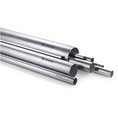What are the disadvantages of stainless steel sink?
Stainless steel sinks are popular options in many kitchens due to their durability, affordability, and sleek appearance. However, like any product, they come with their own set of disadvantages that buyers should consider before making a purchase. In this article, we will explore some of the drawbacks of stainless steel sinks.
1. Prone to Scratches
One of the main disadvantages of stainless steel sinks is that they are prone to scratches. Although stainless steel is known for its strength, it is not scratch-proof. Pots, pans, utensils, and even cleaning tools can leave scratches on the surface of the sink. Over time, these scratches can diminish the sink''s aesthetic appeal and create an uneven surface that is difficult to clean.
2. Shows Water Spots and Stains
Another disadvantage of stainless steel sinks is their tendency to show water spots and stains. Hard water, mineral deposits, and soap scum can leave unsightly marks on the sink''s surface, requiring constant cleaning and maintenance. While stainless steel sinks can be cleaned using mild cleaners, the need for regular upkeep may be a drawback for some users.
3. Can Dent and Chip
While stainless steel sinks are generally durable, they are not entirely immune to damage. Heavy impact from dropped objects can dent or chip the sink, and such damage may be difficult to repair. Although minor dents may not affect the sink''s functionality, they can still detract from its appearance.
4. Can be Noisy
Stainless steel sinks tend to be noisier than sinks made from other materials. The metal surface amplifies sound, which can result in a louder experience when water is running, dishes are being washed, or items are dropped into the sink. This noise can be bothersome, especially in open-concept living spaces or during late-night kitchen activities.
5. Prone to Heat Damage
Another disadvantage of stainless steel sinks is their susceptibility to heat damage. Placing hot pots or pans directly on the sink''s surface can cause discoloration, warping, or even melting of the material. Heat damage not only affects the sink''s appearance but also compromises its structural integrity.
6. Limited Design Options
While stainless steel sinks are available in various sizes and styles, their design options may be somewhat limited compared to sinks made from other materials. For those seeking unique or unconventional designs, stainless steel sinks may not offer the desired level of customization.
7. Requires Regular Cleaning
Stainless steel sinks require regular cleaning to maintain their appearance and prevent the buildup of dirt and grime. This can be time-consuming for individuals with busy lifestyles or those who prefer low-maintenance options. Neglecting regular cleaning can result in a dull-looking sink that is more difficult to clean in the long run.
8. Cost
Despite being relatively affordable compared to other sink materials, stainless steel sinks can still be a significant investment for some homeowners, especially when compared to more budget-friendly options like acrylic or porcelain. The additional costs associated with sink installation and maintenance should also be considered.
9. Susceptible to Rust and Corrosion
Contrary to popular belief, stainless steel sinks are not entirely resistant to rust and corrosion. If the sink is exposed to harsh chemicals or left wet for prolonged periods, it can develop rust spots or corrosion. While this is a relatively rare occurrence, it is still important to take precautions to prevent such damage.
10. Compatibility with Hard Water
Stainless steel sinks can pose challenges for individuals living in areas with hard water. Hard water contains high levels of minerals such as calcium and magnesium, which can leave behind deposits and buildup on the sink''s surface. Regular cleaning and maintenance are necessary to prevent the discoloration and scaling associated with hard water.
Conclusion
While stainless steel sinks offer numerous advantages, including durability and affordability, they do come with some disadvantages. These include being prone to scratches, water spots, and stains, as well as being susceptible to dents, heat damage, and rust. Additionally, stainless steel sinks can be noisy, require regular cleaning, and have limited design options. It is important for potential buyers to weigh these disadvantages against the benefits to make an informed decision when selecting a sink for their kitchen.




